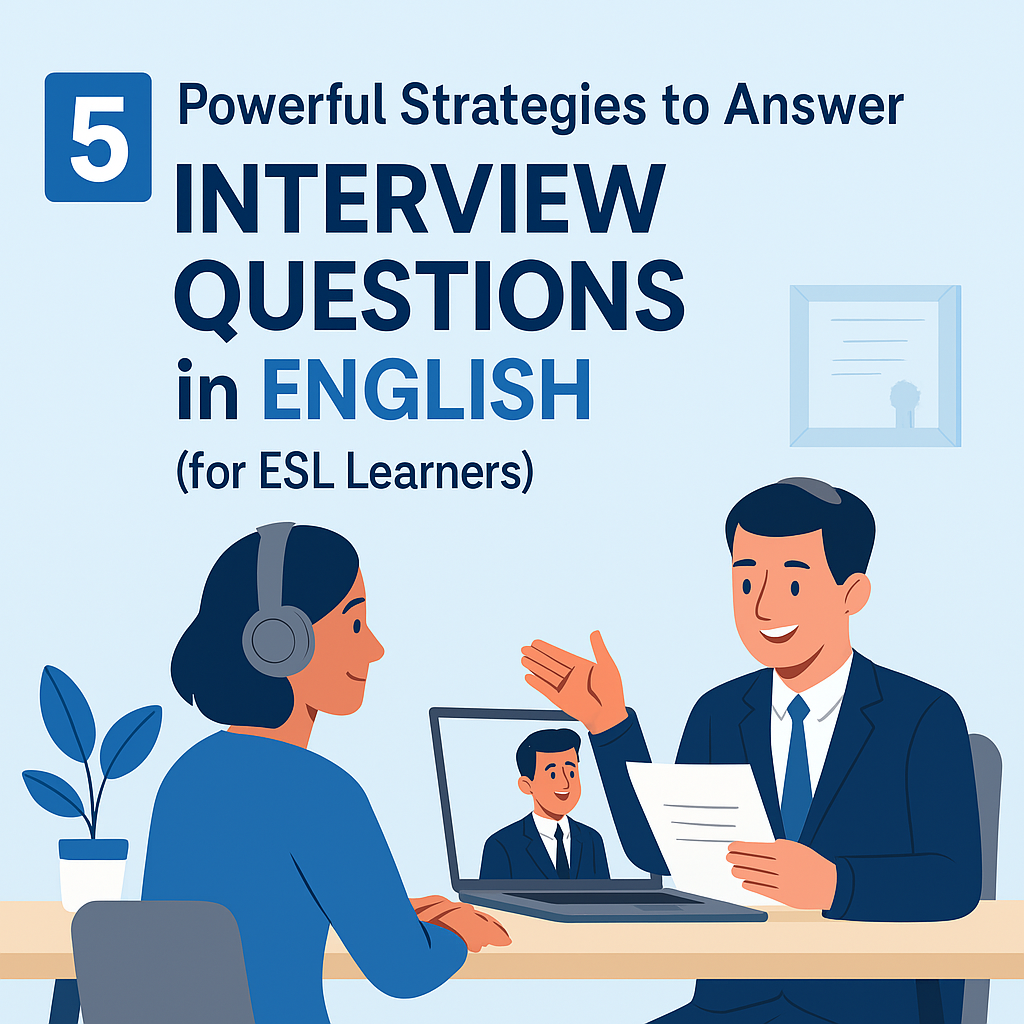
If you’re nervous about interview questions in English for ESL learners, you’re not alone. Many job seekers struggle to express themselves confidently in interviews – even when they understand the question.
The good news? You don’t have to be perfectly fluent to impress an interviewer. You just need the right strategies, phrases, and practice.
In this post, I’ll share 5 proven strategies to help ESL learners confidently answer interview questions in English. Each one is simple, actionable, and designed to build fluency over time.
Why Do ESL Learners Struggle With Interview Questions?
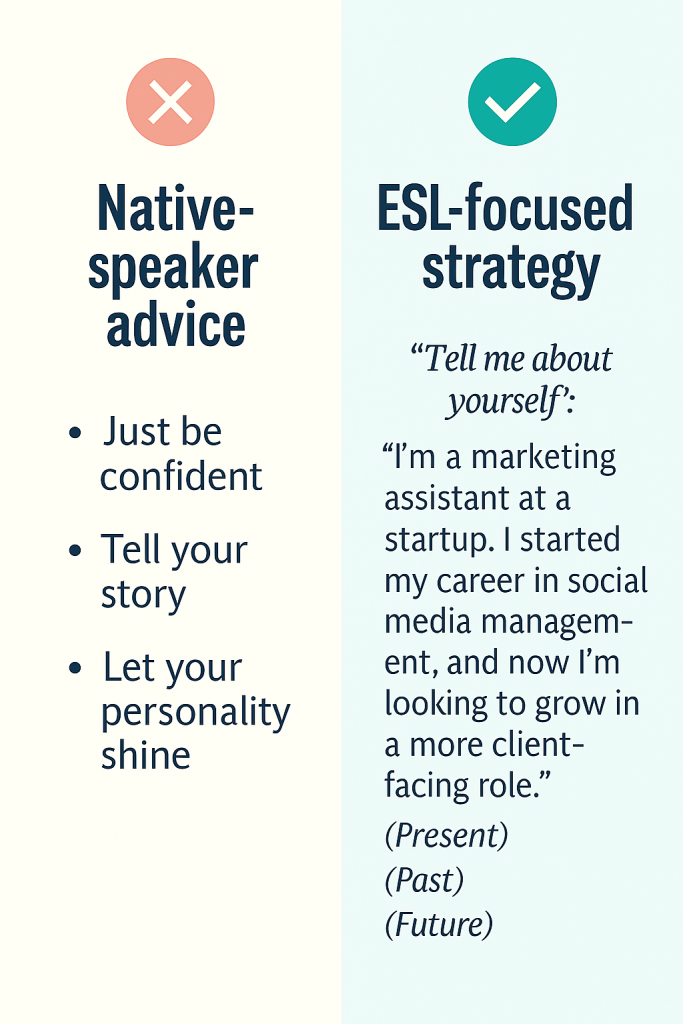
Most interview tips are written for native English speakers. They tell you to:
- “Just be confident”
- “Tell your story”
- “Let your personality shine”
But none of that helps when you’re mentally translating every sentence, worried about grammar, or unsure whether your answer even makes sense.
ESL learners need more than inspiration. You need structure, support, and tools that are actually designed for how you speak and learn.
5 Strategies to Answer Interview Questions in English for ESL Learners
1. Use Simple Answer Structures
Instead of trying to memorize complicated answers, focus on using clear, repeatable structures. These give you confidence and help your answers flow naturally.
Two easy ones:
- Present → Past → Future
For “Tell me about yourself”: “I’m a sales assistant at a retail company. I started in customer service, and now I’m looking to grow into a supervisory role.” - STAR Method: Situation → Task → Action → Result
For “Tell me about a challenge you solved”: “A customer’s order was lost (S)… I was in charge of fixing it (T)… I contacted the supplier and offered compensation (A)… They gave us a 5-star review (R).”
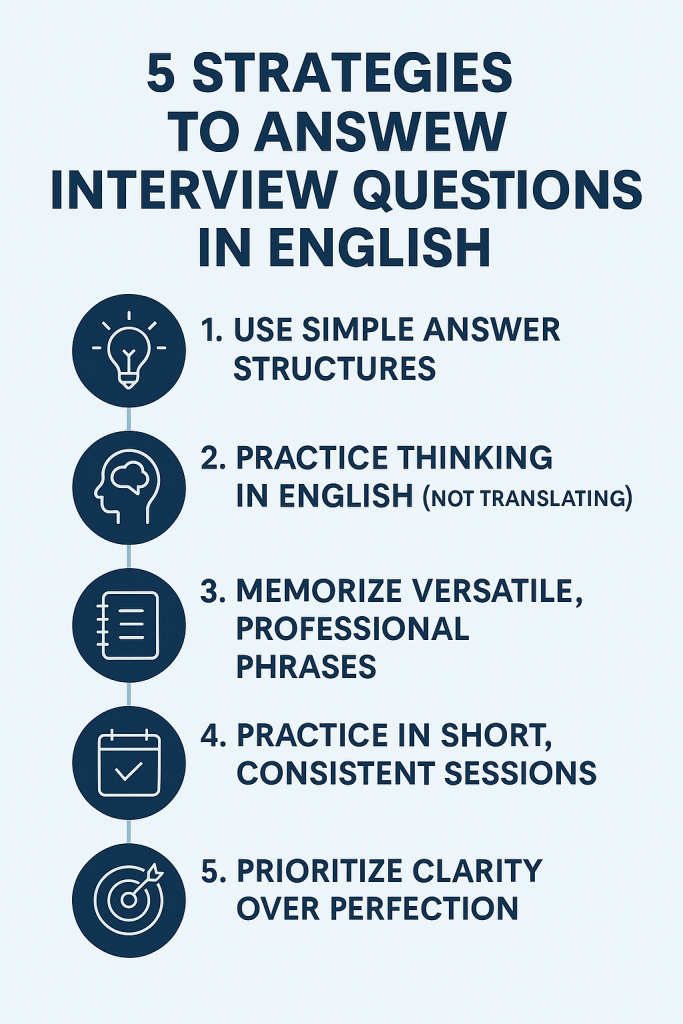
2. Practice Thinking in English
Don’t prepare answers in your native language and translate. That creates delays and awkward phrasing.
Instead, train your brain to think in English by:
- Speaking out loud daily
- Recording yourself answering 1 question a day
- Repeating sentence patterns until they’re automatic
- Avoiding translation apps for interview practice
Even 5–10 minutes a day can boost your speed and confidence.
3. Memorize Useful Professional Phrases
Fluency doesn’t mean complex vocabulary. It means using simple phrases well.
Examples:
- “One strength I bring is…”
- “I’ve developed experience in…”
- “A recent project I worked on involved…”
- “I’m currently improving my skills in…”
Learn 10–15 of these and use them across many questions. They’ll become anchors that make it easier to speak naturally.
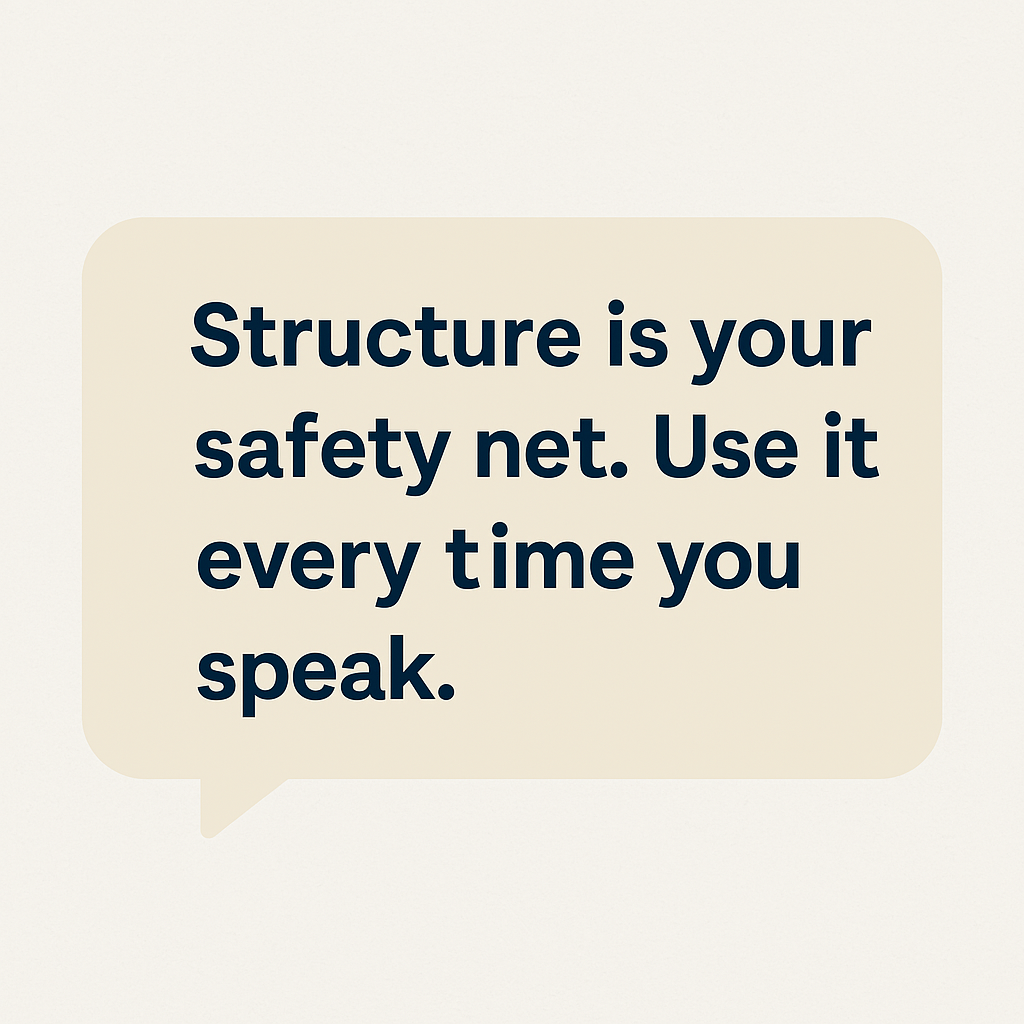
4. Practice Briefly and Often
Instead of cramming for hours, practice short and often.
Try this:
- Choose one interview question per day
- Write your answer in English
- Say it out loud 3–5 times
- Record it and review
- Improve one line tomorrow
Consistency is better than perfection. Daily reps build real fluency.
5. Focus on Clarity, Not Perfection
Interviewers don’t expect flawless grammar. They want to understand your ideas.
Speak clearly, pause between thoughts, and correct yourself calmly if needed:
“I’ve been working in… sorry, I mean I’ve worked in logistics for three years.”
That’s not a mistake – it’s natural communication.
What matters is your ability to express yourself confidently and clearly.
Ready to Prepare Faster and Smarter?
I’ve taken everything I’ve learned from coaching ESL job seekers and put it into a full interview preparation guide, now available on Amazon:
📘 50 Common Interview Questions & Best Responses
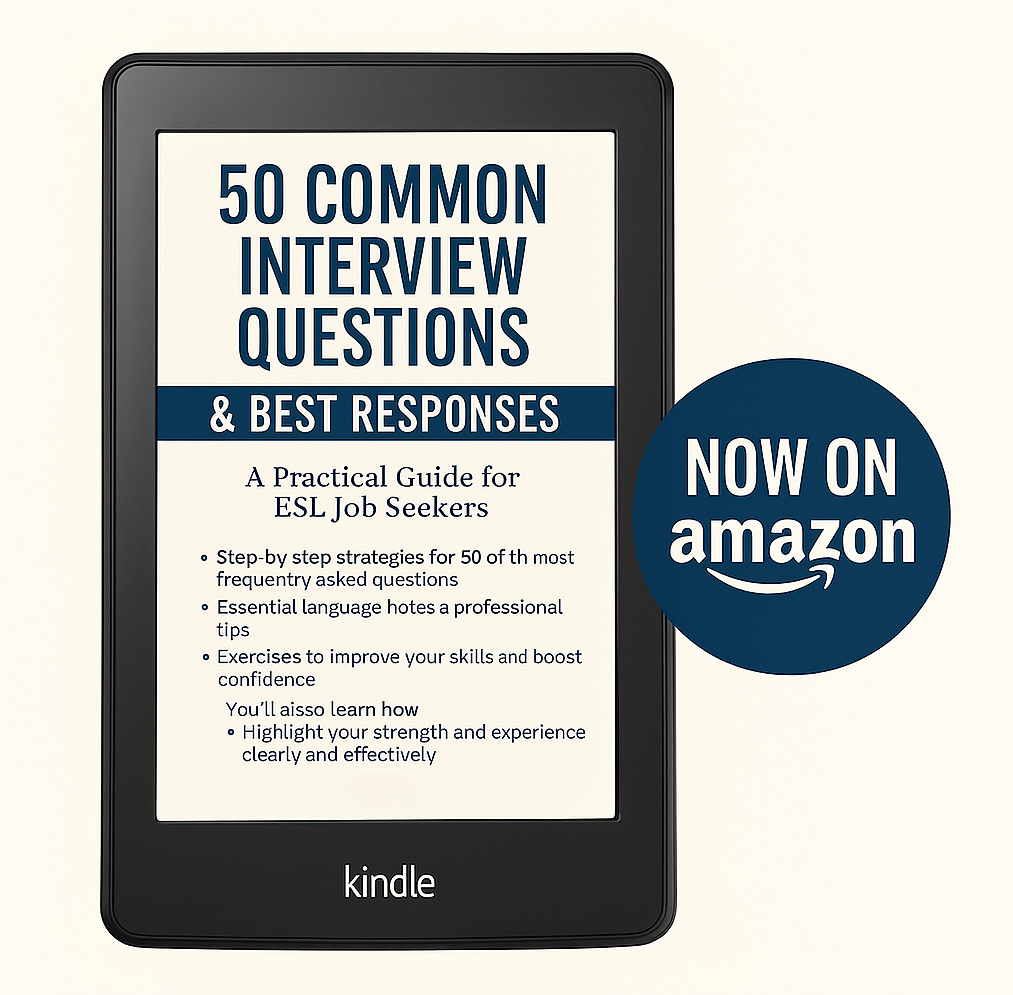
This guide includes:
- 50 of the most frequently asked questions
- Fluent sample answers with professional tone
- Language tips and grammar highlights
- Clear templates and reusable phrases
- Practice prompts to develop your own responses
It’s designed especially for non-native speakers – so you can stop guessing and start practicing what works.
How to Get the Book
- 🛒 Kindle Edition (Amazon): Buy now on Amazon – $9.95
You can also book a 1:1 session if you’d like help practicing these questions with feedback.
Final Words
You don’t need perfect English to succeed.
With the right structure and a few daily habits, you’ll go into your next interview with more clarity, confidence, and control.
Your skills already matter – now let’s make sure they come across clearly in English.